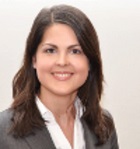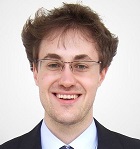Staff of the Forschungsstelle
Head of the Forschungsstelle Robotrecht
Prof. Dr. Dr. Eric Hilgendorf

Telephone: +49 (0)931 31 82303
Telefax: +49 931 31-82797
E-Mail: hilgendorf(at)jura.uni-wuerzburg.de
Brief profile:
Abitur in Ansbach, then military service near Würzburg. Studied philosophy, modern history and law in Tübingen. After completing his coursework in philosophy and history, he obtained his master’s degree. The title of his master's thesis was the Development of parliamentary freedom of speech in Germany. He then completed a PhD in philosophy with the thesis entitled Argumentation in jurisprudence, as well as a PhD in law in which his dissertation had the title Criminal producer liability in the risk society. He received the Reinhold and Maria Teufel Foundation Prize for his dissertation in law. He then completed his second PhD in law (Habilitation) on the subjects criminal law, criminal procedural law and philosophy of law. The title of his dissertation (Habilitationsschrift) was On the delimitation of statements of fact and value judgements in Criminal Law. In the summer semester of 1997, he was appointed Professor of Criminal Law and related areas at the University of Constance. In the winter semester 1998/99, he was elected Vice Dean and Dean of Studies, and in the winter semester 1999/2000, he was elected Dean of the Faculty of Law, University of Constance. Since the summer semester 2001, he has held the Chair for criminal law, criminal justice, legal theory, information law and legal informatics at the University of Würzburg. He established the Forschungsstelle RobotRecht in 2010. In the same year, he was elected Dean of the Faculty of Law (for two years) in Würzburg.
Memberships and Activities:
- Member of Advisory Board of the Giordano-Bruno-Stiftung für Humanismus und Aufklärung
- Director, Bayerisches Forschungsinstitut für Digitale Transformation
- Establishment of the Chinese-German Federation of Criminal Law Professors together with Prof. Dr. Genlin Liang (Peking University)
- Establishment of the project “Global Systems and Intercultural Competence” (GSiK)
- Head of the Working Group AI, Ethics and Law of the Plattform Lernende Systeme (2018-2019)
- Member of the German-American Lawyers Association (DAJV)
- Member of the Ethics Commission on Automated and Connected Driving (2016-2017)
- Member of the German Society for Analytic Philosophy
- Member of the High Level Expert Group on Artificial intelligence of the EU
- Member of the lnternational Association for Legal and Social Philosophy
- Member of the Programming Commission of the Virtual University of Bavaria (vhb) 2005-2009. Ongoing commitment with various online courses in criminal law and criminal procedure
- Member of German Criminal Law Professors' Association (Strafrechtslehrervereinigung)
- Member of Working Group Contemporary Legal History (Arbeitskreis Juristische Zeitgeschichte)
- Member of Round Table on Automated and Connected Driving
- Co-editor of the Juristenzeitung (JZ)
- (Co-)editor of the series "Robotics and Law" published by Nomos-Verlag
- Liaison Professor of Friedrich-Naumann-Stiftung (2006-2009)
- Liaison Professor of Studienstiftung des Deutschen Volkes (2002-2006)
- Chairman of Law Alumni Association Würzburg
Main areas of interest:
- Legal framework for autonomous systems and artificial intelligence
- Media criminal law, especially computer and Internet criminal law
- Media didactics
- Medical criminal law and bio-criminal law, bioethics
- Criminal protection of (human) life
- Criminal law protection of personal honour
- Fundamental problems in criminal law
- History of law and philosophy of law
- Comparative law
A selection of Professor Hilgendorf’s publications is available here and on the website of the professorship.
Members of Staff

Adrian Kleine-Kappenberg
Telefon: +49 931 31-82219
E-Mail: Adrian.Kleine-Kappenberg(at)uni-wuerzburg.de
Adrian Kleine-Kappenberg studied law at the University of Würzburg and passed the First State Examination in January 2023. He has been a student assistant at the chair of Prof. Dr. Dr. Eric Hilgendorf since 2018 and has been a graduate assistant since March 2023. His research focus lies in the area of metaverse.
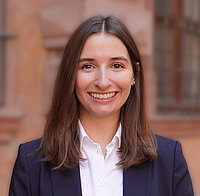
Antonia Krause
E-Mail: Antonia.Krause(at)uni-wuerzburg.de
Antonia Krause studied law at the University of Würzburg and passed the First State Examination in January 2023. She has been a student assistant at the chair of Prof. Dr. Dr. Eric Hilgendorf since 2018 and has been a research assistant since April 2023, where she oversees the legal-informational cooperation project TargetJura. Her focus of interest lies in the area of digitization of the justice system.
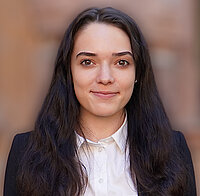
Leonora Qerimi
E-Mail: leonora.qerimi(at)uni-wuerzburg.de
Leonora Qerimi is studying law at the University of Würzburg along with European law. She has been working as a student assistant at the chair of Prof. Dr. Dr. Eric Hilgendorf since July 2021. She has been supervising the SafeRoBAY project since August 2023. Her main areas of interest are European law, copyright law and the digitalisation of the justice system.
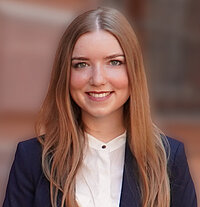
Sina Tenbrock-Ingenhorst, European Lawyer
Telefon: +49 931 31-85244
E-Mail: Sina.Tenbrock-Ingenhorst(at)uni-wuerzburg.de
Sina Tenbrock-Ingenhorst studied law at the University of Würzburg, along with European law. During her studies, she was a student assistant at the chair of Prof. Dr. Eckhard Pache. She successfully passed the First State Examination in July 2022. Since March 2023, she has been working as a graduate assistant at the chair of Prof. Dr. Dr. Eric Hilgendorf. Her focus of interest is on the topic of law and digitalisation. In her doctoral thesis, she is working on the digitization of the judiciary, with a special focus on the recording of main hearings and the consequences for virtual reality.
External doctoral candidates
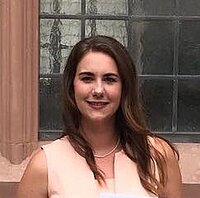
Dipl.-Jur. Sophie Garling
E-Mail: sophie.garling(at)stud-mail.uni-wuerzburg.de
Sophie Garling completed the First State Examination in Law at the University of Würzburg in 2018. Since then she has been employed as a graduate assistant in a law firm specializing in IT law, and at the same time, she is conducting research for her PhD. This work involves using various methods for the development of a system of legal experts.
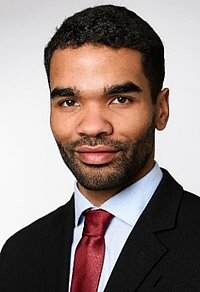
Jille Kikonga, LL.B.
Jille Kikonga studied in Cologne and Paris, commencing in October 2012, first on the German-French Law Course, which he completed in 2016 with the award of the Maȋtrise en Droit and an LL.B. He then passed the First State Examination in Law in Cologne in October 2018. Since April 2017, he has worked as a graduate assistant in international law firms. Since February 2019 his work as a graduate assistant has been in the field of intellectual property and technology. Since March 2019, he has also been employed at the University of Cologne as a graduate student assistant in their State Examination preparatory course, mainly correcting practice exams and writing sample exam question solutions. As an external doctoral student, he has conducted research since August 2019 under the supervision of Professor Dr. Dr. Eric Hilgendorf into criminal law aspects of the dissemination of fake news.

Baran Kizilirmak, LL.M.
E-Mail: kizilirmak.baran+wue(at)gmail.com
Baran Kizilirmak studied law at the Ankara University (Turkey) and completed his first master’s degree at the Istanbul University with the master’s thesis “Use of Data in Criminal Procedure Which are Obtained for Preventive Purpose”. Later, he completed a second master’s degree on European and European Legal Studies at the University of Hamburg, where he attended as a Jean Monnet scholarship holder. Successfully completing the degree as second in program and submitting his master’s thesis “Cross-Border Transfer of Personal Data Under GDPR Regime and Turkish Legal Framework” he obtained LL.M. degree. He has been working as a research assistant at the Kadir Has University (Turkey) at the Department of Criminal and Criminal Procedure Law, where he temporarily left to conduct his doctoral research at the Forschungsstelle RobotRecht, under Prof. Dr. Dr. Eric Hilgendorf’s supervision. Being a DAAD scholarship holder, he is writing his doctoral thesis on criminal liability arising from the use of autonomous systems. His main field of work is information technologies, privacy, artificial intelligence and criminal law.
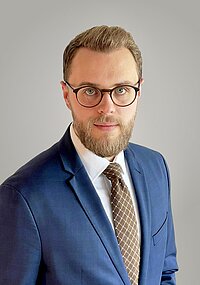
Christian Kleindopff
E-Mail: christian.kleindopff(at)gmx.de
Christian Kleindopff studied law at the Julius-Maximilians-University of Würzburg and successfully passed the first bar exam in January 2019. Following this, Mr. Kleindopff began his doctoral studies at the chair of Prof. Dr. Dr. Hilgendorf in spring 2019 and is conducting research as an external doctoral candidate on issues of criminal and civil liability of drivers in connection with the use of driver assistance systems in road traffic. In addition to his doctorate, Mr. Kleindopff works as a research assistant in a major international law firm in Düsseldorf and is completing a Master of Laws in corporate law at the University of Cologne.

Ass. Jur. Jannick Thonemann
E-Mail: jannick.thonemann(at)stud-mail.uni-wuerzburg.de
Jannick Thonemann studied at the Ludwig-Maximilians-University of Munich and at the Uppsala Universitet in Sweden. After passing the First State Examination in Law in 2015, he passed the Second State Examination in Law in 2017, thereby completing his German legal education. Since 2018, he has been conducting research on questions of artificial intelligence as an external doctoral student. His research interests include the [legal] protection of AI software and the legal requirements for its use.
|
| 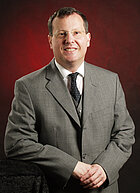 Roger Fabry |  Dr. Jochen Feldle | 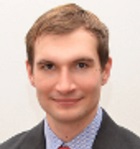 Dr. Jan-Philipp Günther |
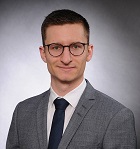 Dr. Christian Haagen |  Dr. Berthold Haustein |  RA Sven Elter (né Hötitzsch) | 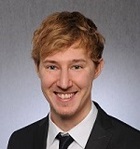 Dr. Ulrich Honeker | 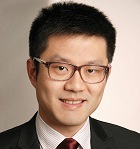 Dr. Xiaoyan Huang, LL.M. Eur. |
 Prof. Dr. Carsten Kusche |  Nicolas Kutschera, European Lawyer | 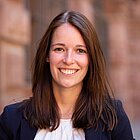 Dr. Anna Lohmann | 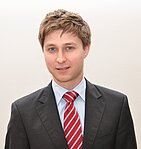 Dr. Severin Löffler |
|
| 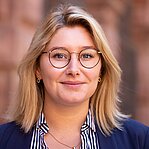 Ass. Jur. Pia Mesenberg | 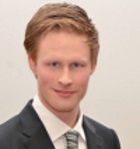 Dr. Florian Münch |  Ass. Jur. Daniel Nikol | 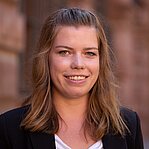 Dr. Annika Schömig |
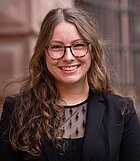 Jacqueline Sittig |  Max Tauschhuber, European Lawyer |  Dr. Paul Vogel, LL.M. Eur. |  Justin Völkel | 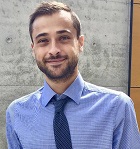 Dr. Nicolas Woltmann |



